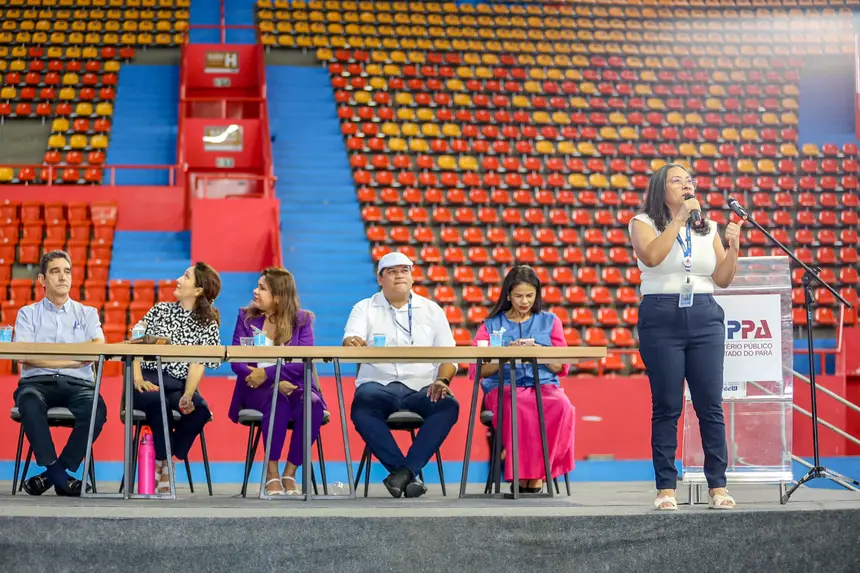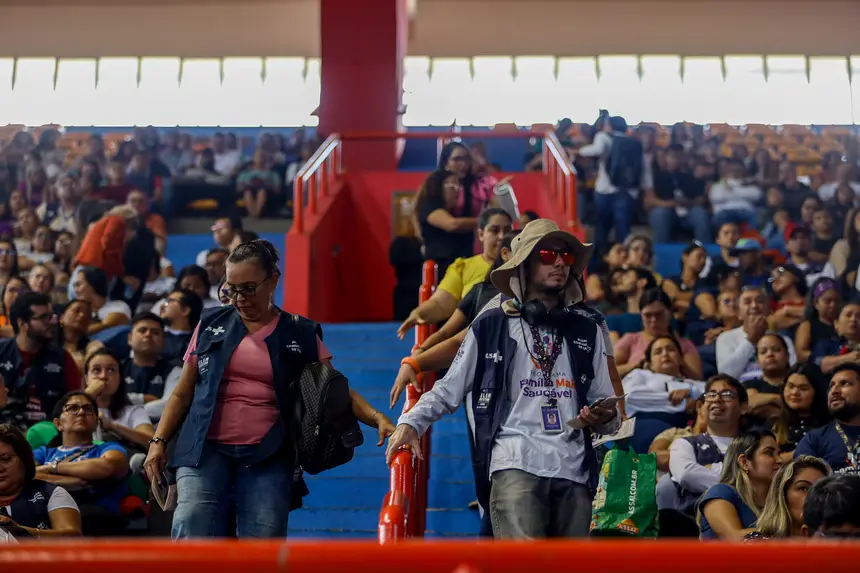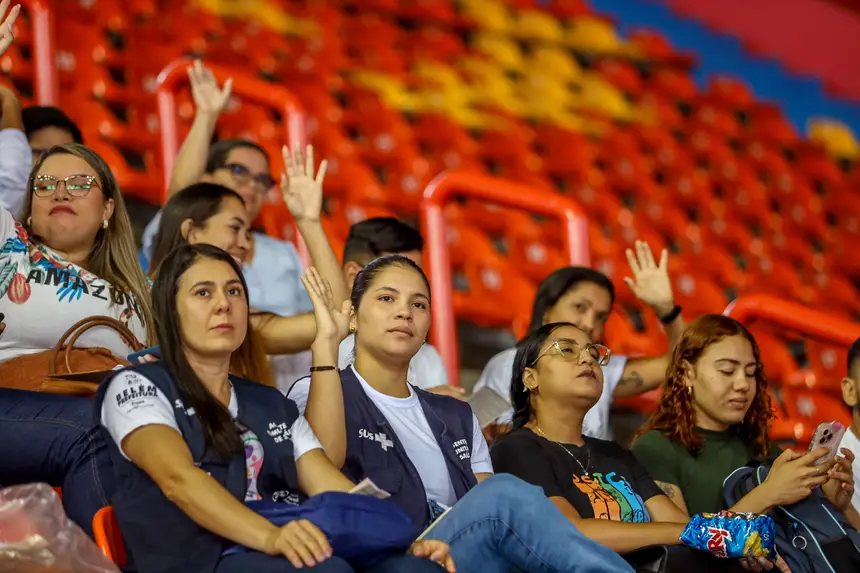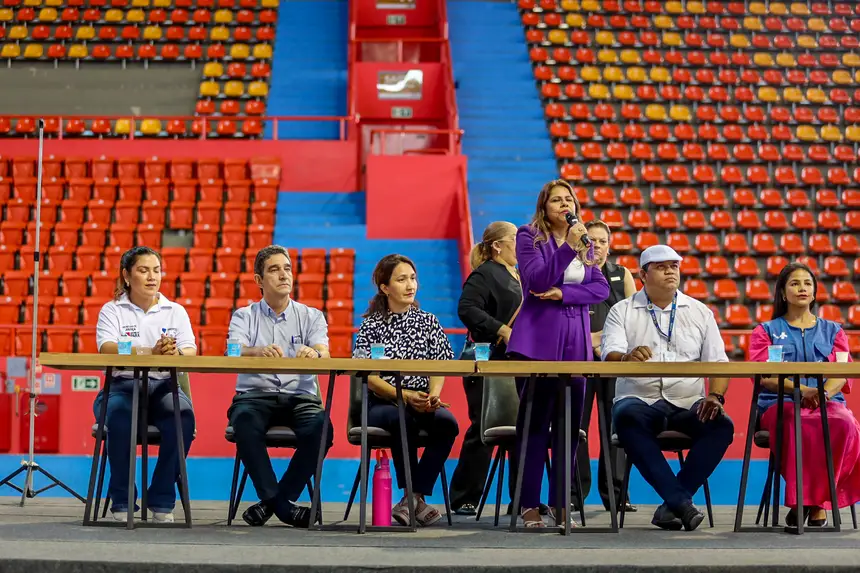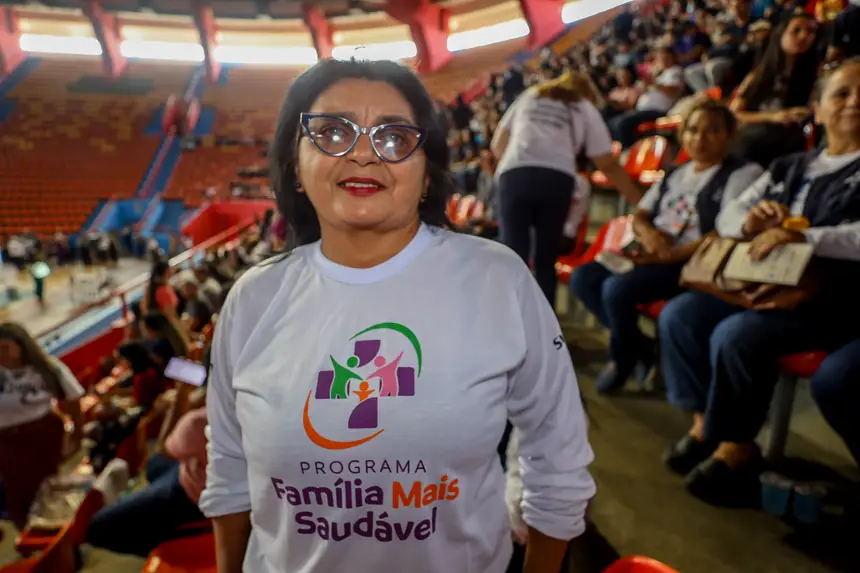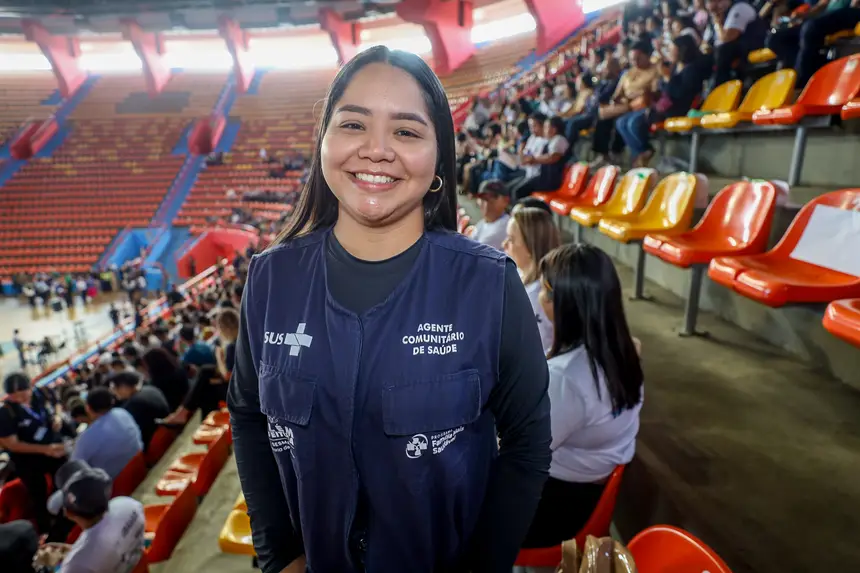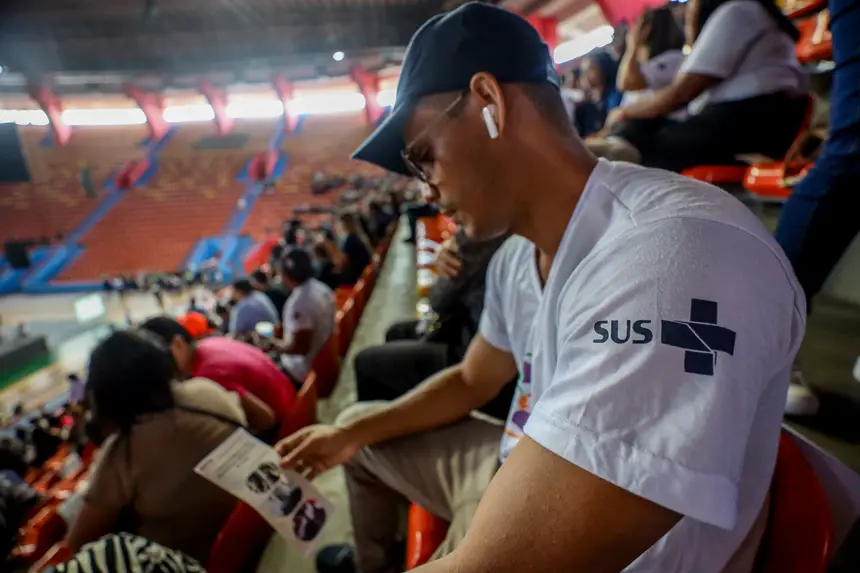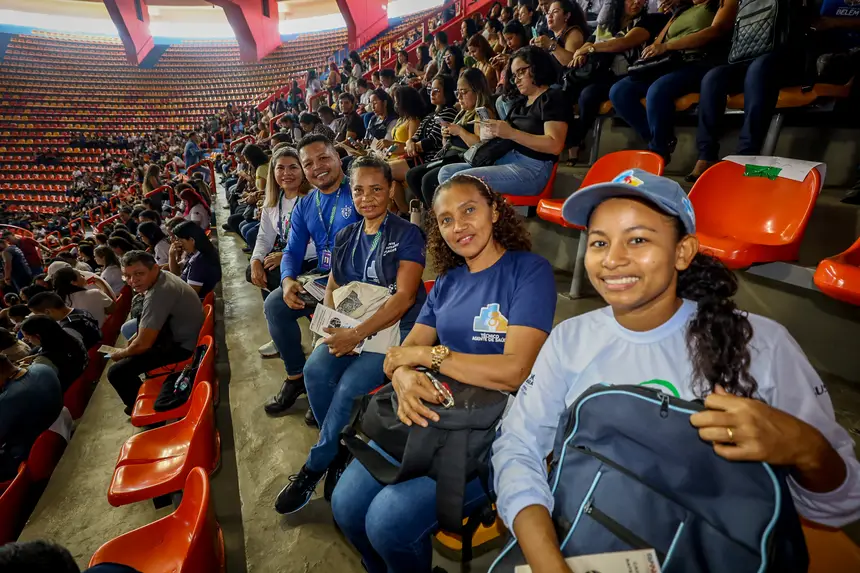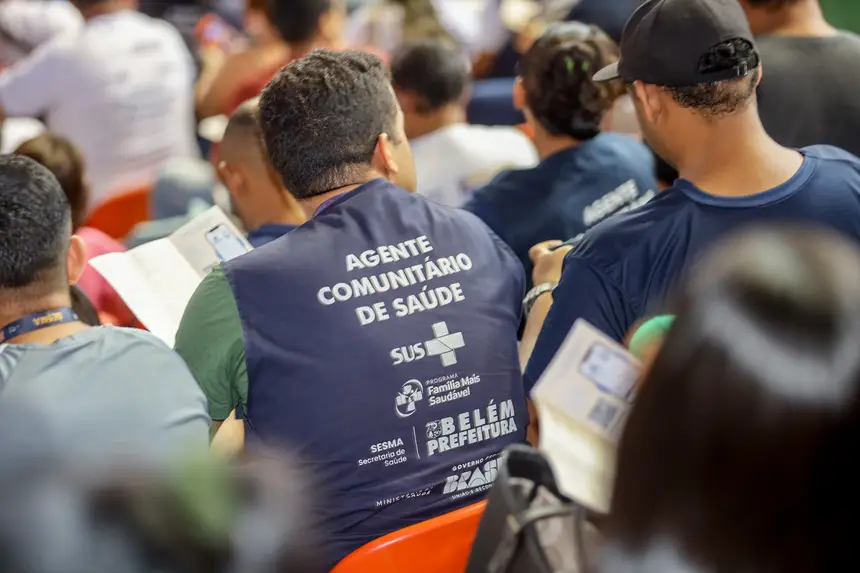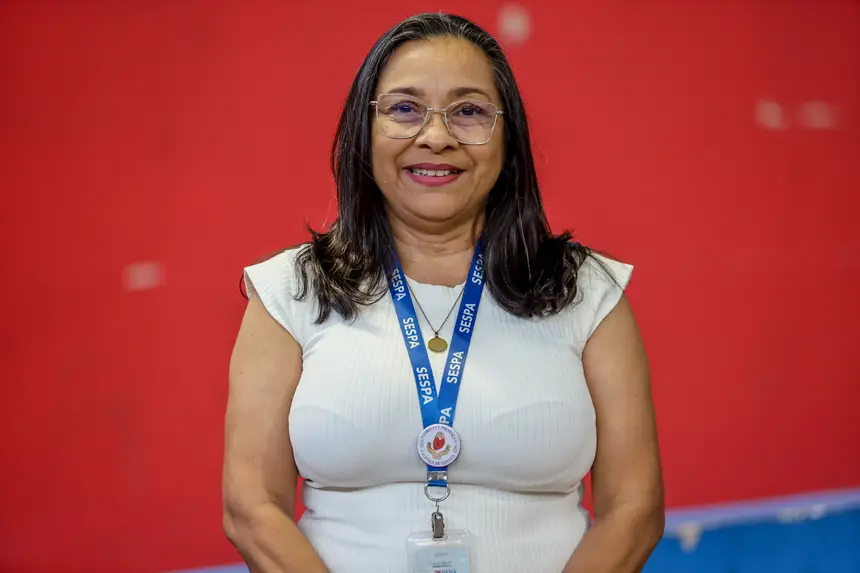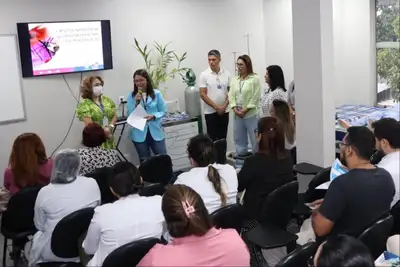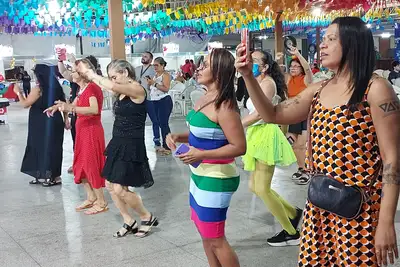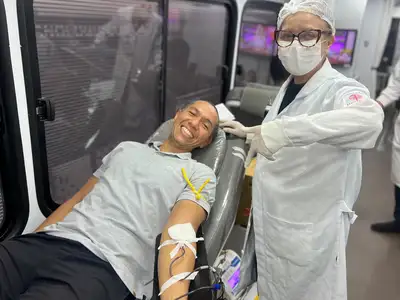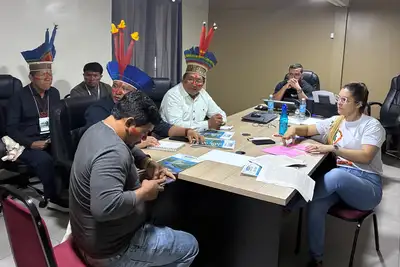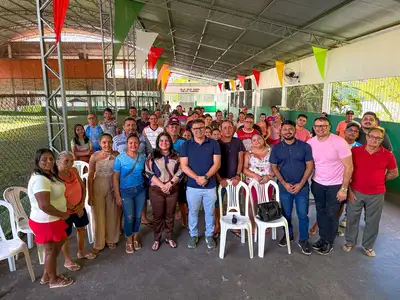Sespa trains over 1,600 community agents for the prevention of Chagas disease
Training held in Belém provided guidance on good practices, legislation, and registration of artisanal açaí processors, in partnership with the Public Ministry and Sesma

The State Department of Public Health (Sespa), through the State Coordination of Chagas Disease and the State Department of Sanitary Surveillance, held this Wednesday (13), at the Guilherme Paraense Arena (Mangueirinho), a training course for over 1,600 community health agents (ACS) from Belém, aimed at the prevention and combat of Chagas disease and food security in the processing of açaí. The action was in partnership with the Public Ministry of the State of Pará (MPPA) and the Municipal Health Department of Belém (Sesma).
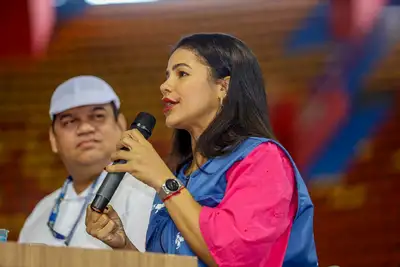
The training addressed State Decree No. 326/2012, which establishes norms and good practices for açaí processors, the role of sanitary surveillance in the registration of establishments, and the use of the "Açaí no Ponto" application, developed in partnership with the Federal University of Pará (UFPA) to map sales points. The goal is to register about 8,000 processors in the municipality, between September 1 and 5, with the direct support of community health agents.
According to the coordinator of the Chagas Disease Control Program at Sespa, Éder Monteiro, the integration between different agencies and sectors is essential to reduce the incidence of the disease in the State. "Chagas disease is not fought only in the health sector. It is necessary to unite different areas of society to ensure prevention and control, and the agents are fundamental in this process because they are on the front lines and have direct contact with the population," he stated.
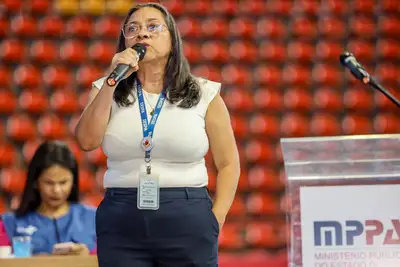
Partnership - For the inspector of the State Department of Sanitary Surveillance at Sespa, Dorilea Pantoja, the involvement of community agents is strategic to expand the reach of information. "Today, our goal is not only to train but to invite the agents to become partners in the registration of artisanal açaí processors. We need to know where they are located to ensure food security, and this survey will only be possible with the help of those who work directly in the communities," she explained.
The Public Ministry is also actively participating in the action through the Consumer Defense Center. The prosecutor and coordinator of the Center, Érica Almeida de Sousa, highlighted that inspection and training are fundamental to protect the health of the population. "The role of the MP is to ensure that consumers have access to safe and quality food. For this, we unite efforts from state, federal, and municipal agencies, and we managed to create a working group that operates in various fronts, including actions in 12 municipalities," the prosecutor informed.

Among the participants, community health agent Elaine Mesquita, from the Cremação neighborhood, highlighted the importance of delving deeper into the topic. "This training gives us the conditions to better guide the population about the disease and raise awareness for the registration of processors. It is knowledge that will help us protect the community," said Elaine.
Information - Community agent Rosa Helena Pereira, from the Condor neighborhood, reinforced that the multiplication of information is essential for the success of the action. "With more knowledge, we can better guide the processors and prevent the disease in our community," she emphasized.
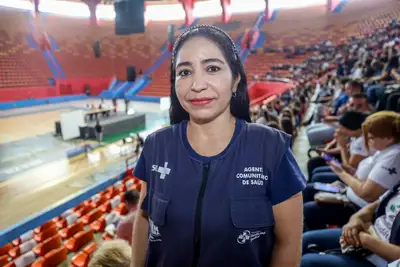
Edima Souza, ACS in the Terra Firme neighborhood, emphasized that the training has a direct impact on the prevention of the disease in more vulnerable areas. "This training is important because it will help us bring knowledge about the prevention of Chagas disease, which is very recurrent in Pará, especially in peripheral regions where there is no adequate sanitation. By bringing this information to our users, we will be strengthening health and prevention," she stated.
The program included lectures on the epidemiological profile of Chagas disease in Pará, technical guidance for the safe handling of açaí, and the role of MPPA in inspection and support for sanitary surveillance, as well as training for the use of the application that will assist in the registration of establishments.




